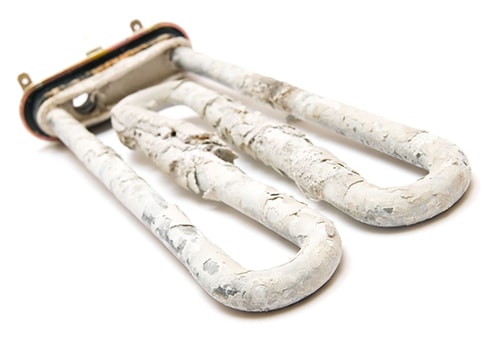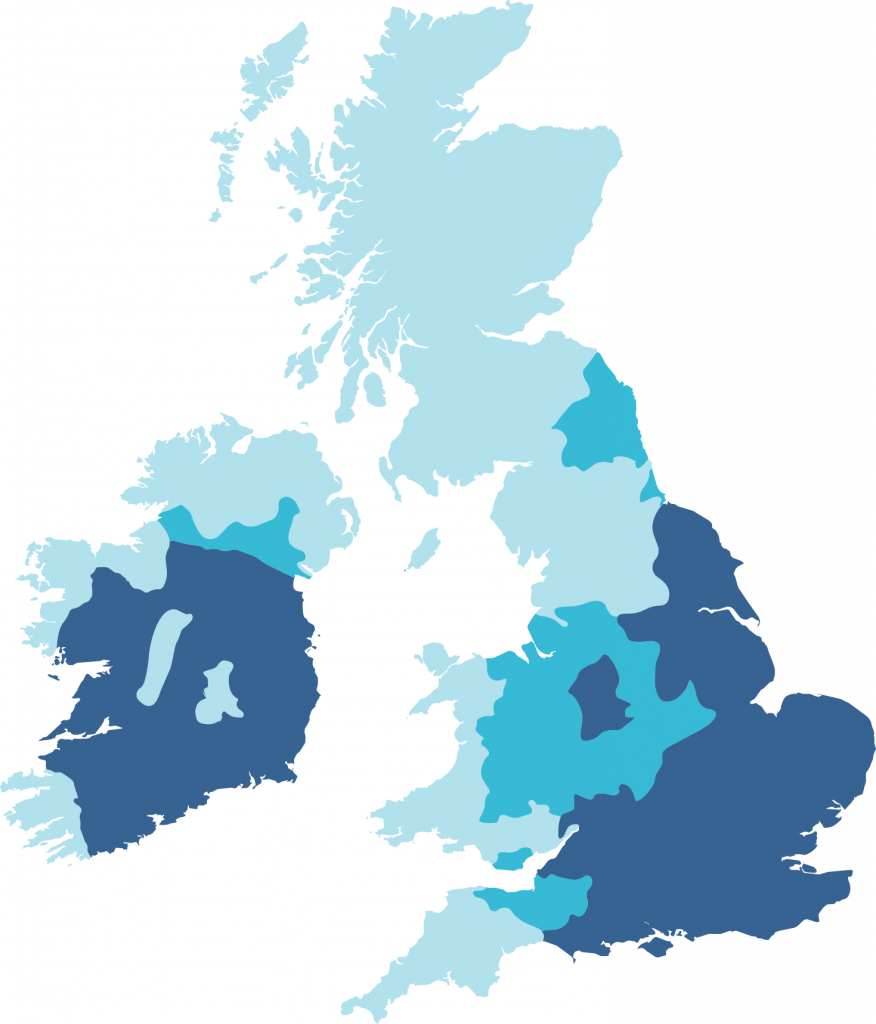We use cookies to make your experience better. To comply with the new e-Privacy directive, we need to ask for your consent to set the cookies. Learn more.
How Hard Is My Water?
Check your postcode & see if you live in a hard water area with our water hardness map. Lots of people live in hard water areas, discover: how hard is my water?
Check your postcode
S2 5SY is in a soft water area
What does this mean?
The water supply to your property contains low levels of hard water minerals. Soft water is below 60ppm and means that currently, your washing should be softer, your energy bills more efficient and your appliances should last longer due to a lack of limescale build-up, compared to hard water areas.We recommend
You do not need a water softener in your property. It can be a common misconception that bad or poor tasting water is mistaken for water hardness. If your water has an odour or taste issue then you can benefit from a water filter. We provide a range of water filter systems that you can install to get great tasting, bottled quality water straight from the tap!What is Hard Water
Hard water has a high number of dissolved minerals, predominantly magnesium and calcium. Water is naturally soft when it falls from the sky and gains its hardness after coming in to contact with the ground.
If rainwater lands in an area with porous rock such as limestone, the water penetrates the ground and as it passes through collects and dissolves particles and minerals such as calcium and magnesium, gaining its hardness. If the water falls on non-porous rock such as granite, the water cannot penetrate the ground and therefore cannot pick up any particles or minerals and so stays soft.
The South East of England and london water hardness levels are predominantly high. Scotland, Ireland and Wales in the main have soft water as you can see in the water hardness map.
How is Hard water measured?
Hard water is measured in parts per million (PPM) and how many particles of hardness are dissolved in the water per million particles gives a rating. This rating has been developed over time to the following categories:
| PPM | Water Hardness |
|---|---|
| 0 – 50 PPM | Is soft. |
| 51 – 100PPM | Is moderately soft. |
| 101 – 150PPM | Is slightly hard. |
| 151 – 200PPM | Is moderately hard. |
| 201 – 275 PPM | Is hard. |
| 276 – 350 PPM | Is very hard. |
| 350 + PPM | Is aggressively hard. |
Issues related to hard water
When hard water makes its way through the mains and into our homes for cooking, cleaning, washing and heating is when problems can arise. Millions of people in the UK receive hard water through the mains water supply with London having particularly large areas with hard water. When hard water molecules are agitated (Warmed up) in kettles, dishwashers and any home appliance the hardness can precipitate as scale.
Scale is not something you want in your home for numerous reasons including blocking and damaging pipes, reducing the effectiveness or braking household appliances including the boiler.
Common hard water and Limescale issues are:
 Blocked valves
Blocked valves- Reduced bores in pipe work
- Less efficient appliances
- Higher electricity and gas bills
- Limescale build up (see image)
- Longer cleaning times
- Boiler breakdown
- Poor surface appearance (chrome work)
What is a water softener?
A water softener system attaches directly to the mains water supply and works by passing the water through the system, stripping the hard water particles from the water, before releasing the softened water back into the ongoing water supply. Aqua Cure water softeners come in various sizes for domestic use to fit under a kitchen sink or cupboard and larger sizes for bigger households and commercial use.
The chemistry bit:
Hard water passes through a cylinder inside the water softener containing ion exchange resin beads packed with sodium ions (Na). Hard water minerals such as magnesium (Mg) and Calcium (Ca) react with the resin and exchange places with the sodium ions (Na) leaving the outgoing water with sodium ions instead of hard water causing minerals.
Each softener can soften a certain amount of water before reaching its maximum capacity and no longer has any sodium ions to exchange. After the maximum litre capacity has been reached (each softener is different) a salty brine solution will wash over the ion exchange resin to regenerate the Sodium ions (Na) and removes the hardness minerals such as Magnesium (Mg) and Calcium (Ca). The process is now reset and is again ready to start the exchange process with the incoming feed water.
Types of water softener:
Metered regeneration:
Metered regeneration occurs after a pre-set amount of water has passed through the resin. All of our Metered water softeners are pre-set at the time of manufacture for ease of use and saves time on initial set up. The benefit of a metered water softener is that it will regenerate once the capacity usage is reached.
Timed regeneration:
An alternative to a metered water softener system that is programmed on initial set up. Once the specified time to regenerate has come, the water softener will regenerate automatically. The problem with this method is that there could still be enough sodium ions left in the resin to continue softening the water but the timer has been set to regenerate early, this can waste salt and here at Aqua Cure we have opted for metered regeneration Water Softeners.
What Capacity options are there?
Choosing the right size softener depends on a number of things. To make it simple we have categorised our domestic softener range into the following options depending on how many people live in the household.
- 1-2 Person Compact Premium Household Water Softener (5 Litre)
- 2-4 Person Compact Premium Household Water Softener (10 Litre)
- 2-4 Person Premium Household Water Softener (10 Litre)
- 4-5 Person Premium Household Water Softener (14 Litre)
- 5–6 Person Premium Household water Softener (18 Litre)
- 7+ Person & Commercial size Premium Water Softener (23 Litre)
Maintenance and installation:
Maintenance:
All water softeners need to be kept topped up with water softener salt as its packed with sodium ions (Na) needed to create the brine that washes over and regenerates the resin. Salt types vary depending on your softener system. Our systems require tablet salt to refresh the resin.
Superior performance is achieved by the more expensive, finer and more efficient resin contained within the high capacity vessels, which results in more softened water for every kilogram of salt used. The water softener needs access to an electrical socket which also means no replacement batteries are required. All machine functions are taken care of automatically by a pre-set sophisticated metered controlled valve.
Installation
All of our water softeners come with everything you could need to install the water softener and start benefitting from softened water immediately, including a free bag of salt. All of our softeners are pre packed with all of the hoses and installation components required to to be fitted onto a 15mm (UK standard) pipe including:
- Hoses and Connectors
- Drain Hose
- Jubilee Clip
- Water Softener Salt
15mm Install kit:
- 2x Compression Tee - 15mm with 3/4" Male Tap
- Non Return Valve
- Compression Ballofix 15mm
- Compression Equal Tee 15mm
Warranty:
All of our metered water softeners come with a 24-month warranty and a service card that can be completed and sent to our service partners. You will receive a 24-month manufacturer warranty on parts & labour from the date of purchase.
Free Delivery:
We offer free delivery on the full range of metered water softeners if ordered to mainland UK.

